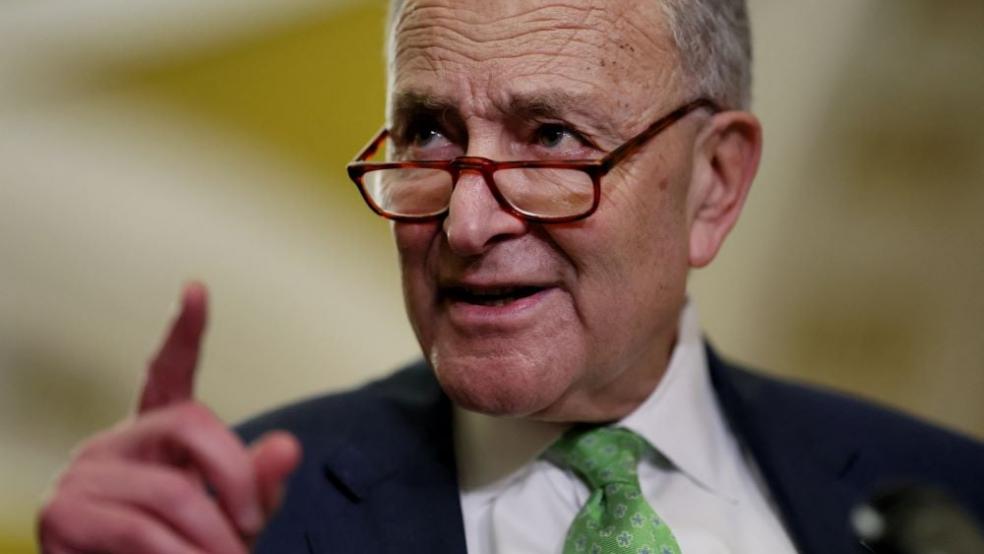Memorial Day and the unofficial start of summer are rapidly approaching, but on Capitol Hill, the season of messaging bills is already in full swing.
This week, the Senate will once again consider a bipartisan border security bill that Republicans blocked earlier this year after former President Donald Trump urged them to oppose it even though it contained many GOP priorities. At the time, the $20.23 billion in border measures were packaged with billions more in funding for Ukraine, Israel and Taiwan, which Congress has since approved. Senate Majority Leader Chuck Schumer announced Sunday that he’ll bring the border bill up again as a standalone measure.
“The Border Act overhauls our asylum laws, hires thousands of new border agents, invests in cutting edge technology to stop the flow of fentanyl and gives the President new authorities to close the border,” the New York Democrat wrote in a letter to Senate colleagues. “Endorsed by the National Border Patrol Council, the Chamber of Commerce and the conservative Wall Street Journal editorial page, the bipartisan Border Act is, by any objective measure, a tough, serious-minded, and — critically, bipartisan — proposal to secure our border.”
It’s also doomed to fail again.
Even though the White House on Monday called on senators to set aside partisan politics and vote to secure the border, Schumer admitted in his letter that he does not expect all Democrats to support the bill this time. Senate Republicans haven’t changed their stance on it since February, when they killed the bill in a test vote. And House Republican leaders made clear in a joint statement that “the bill would be dead on arrival” should it get to their chamber. Speaker Mike Johnson and other House GOP leaders instead urged Schumer to vote on a House Republican immigration and border bill, H.R. 2. “If Senate Democrats were actually serious about solving the problem and ending the border catastrophe, they would bring up H.R. 2 and pass it this week,” they wrote.
The bottom line: Schumer is setting up a procedural vote on Thursday. It will very likely fail to get the 60 votes needed, but Democrats are pushing ahead anyway in the hopes that this will bring renewed attention to the border issue — a key one for many voters — and further shift the narrative around it, allowing them to blame Republicans for a crisis that has dogged President Biden.





